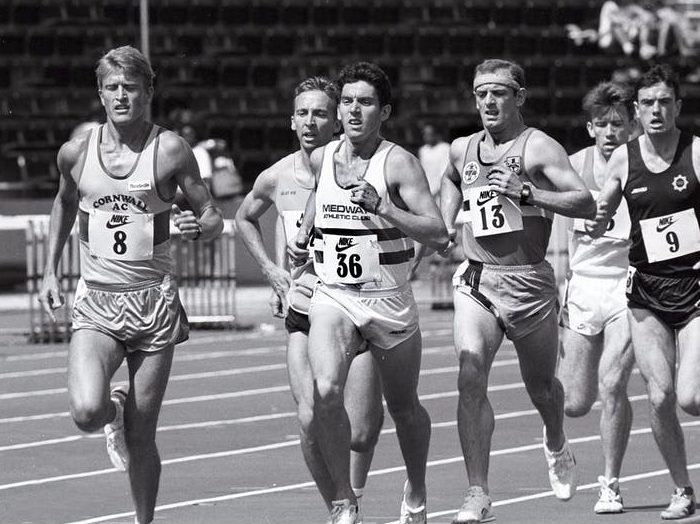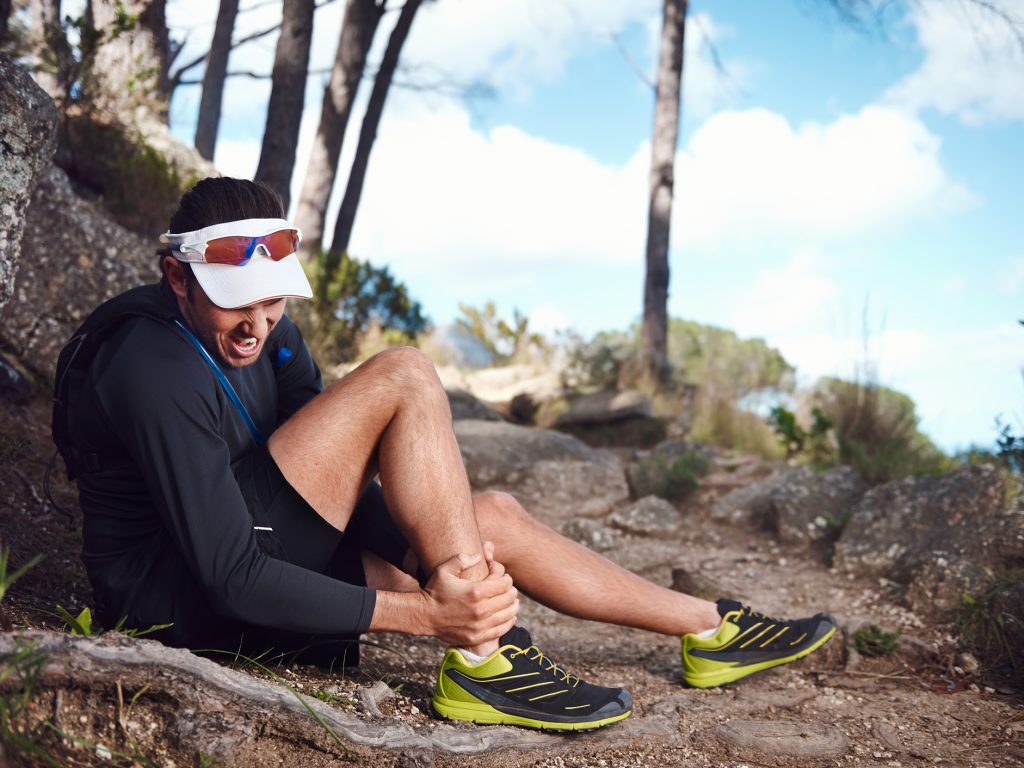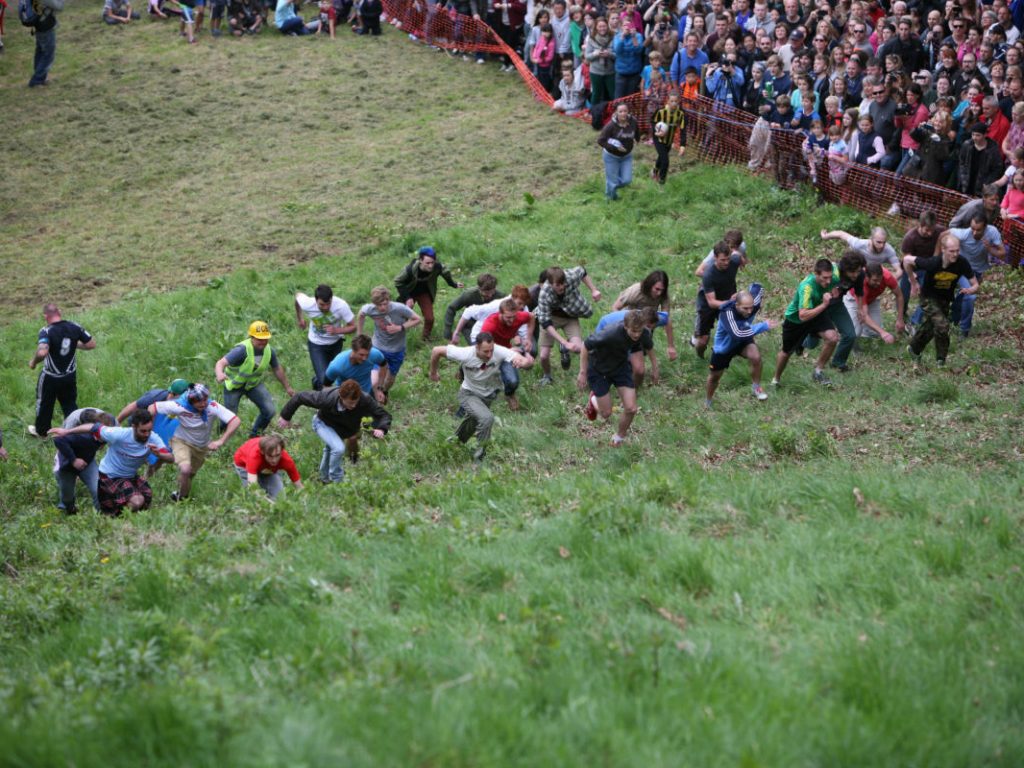Intro
Cornwall’s Dave Buzza is ranked 30th on the UK all-time marathon rankings with a time of 2:11:06 which he set back in 1993 when finishing 11th in the World Cup Marathon in San Sebastian.
My coach, Wayne Buxton from Classic Running, suggested I ask Dave to answer a few questions on his training as he was a formidable competitor on the road, track and cross country for many years and was a frequent site at the front of the UK races in his distinctive Cornwall vest.
Dave was one of many great athletes to come out of Loughborough University under the guidance of legendary running coach George Gandy and here he shares some insights into his training while in the UK and during the time he spent in Australia.
Personal Bests:
800M 1.54.5
1500M 3.42.6
3000M 7.56.21
5000M 13.50
10000M 29.16
10 MILES 47.17
HALF 1.03.13
MARATHON 2.11.06
Key Achievements:
34th World X-C Champs 1988
16th World Cup Marathon (London) 1991 2.12.37
20th World Champs Marathon (Tokyo) 1991
6th London Marathon 1993 2.12.24
11th World Cup Marathon 1993 San Sebastian 2.11.06
17th World Champs Marathon (Athens) 1997
How did you get involved in athletics?
I was ok at sprints in Year 7 (won 200m), but I knew I was better at 800 and 1500m. In Year 9 I teacher called Alan Rowling encouraged me to start running twice a week while playing rugby for Cornwall. I got more serious with running and less keen on rugby after 16.
Did you do any track?
I did track from age 14 onwards and still ran it while doing marathons. I also ran cross country throughout my career. Still got to run fast in a marathon (hopefully)!
How did you progress/get into marathon running?
Fairly standard British progression. X-C up to 9 miles and 10Ks on track and road and then halves and marathon in 1991 after 16 months travelling around the world (with a bit of running in Oz).
What would a typical training week in a build up to a marathon look like? (e.g. mileage/sessions etc)
Sample week when in Oz for training pre-World Champs Marathon 1991:
Sunday a.m. 27 miles easy, p.m. 7 miles easy
Monday a.m. 6 miles easy, p.m. 12 miles easy + gym circuits
Tuesday a.m. 6 easy, p.m. 11 miles including 4k “Tan” lap + 40 mins hilly fartlek
Wednesday a.m. 15 miles easy, p.m. 6 miles easy
Thursday a.m. 6 miles easy, p.m. 10 miles including 8 x 400m (45 sec jog) on road (a shorter session than usual as race 3 days later)
Friday a.m. 6 miles easy, p.m. rest as pre-race (non-race weeks usually 8 miles p.m.).
Saturday a.m. 5 miles easy, p.m. rest (non-race weeks usually a shorter session p.m.)
Sunday Gold Coast Half Marathon 8th position in 63.36
What sort of races did you like to include in a marathon build up and how far out from race day?
I liked to race a Half 3-4 weeks before a marathon. I wasn’t fussed about racing other distances but occasionally did.
I would run the Half flat out with only 2 days easier beforehand and I never ran great! I ran Fleet Half in 64.40 three weeks before I first ran the London Marathon where I finished in 2.12.37 and I went through halfway in 65.35 feeling great!
How much rest and sleep did you get when you are in a marathon build up?
In my first marathon I was teaching full time and I used to crash out for an hour on getting home and then have to go training – I went full time later. 7-8 hrs sleep fine.
Did you follow a specific diet when training?
No. The side benefit of running was that I could eat what I liked! Uni looked at my diet and said that as I ate a lot I got enough nutrients – my diet wasn’t great but it was ok.
Did you complete regular strength and conditioning exercises (including mobility/technique drills and stretching)?
I did one session of gym circuits a week most of the time and sometimes a weights session. I never stretched, except the occasional bit of crucifix stretching if my lower back was tight.
What role did physio / massage /osteo play in your training?
I thought physio/massage was useful to prevent injury, though I couldn’t afford it a lot of the time.
Did you rotate your footwear for different sessions throughout the week?
I always had at least 2 pairs of trainers on the go, plus racer/trainers for road sessions and road racers for track. I preferred to do all my easy running in big, clumpy trainers to build strength, protect against injury and then feel great when running faster sessions/races.
Did you have any mental preparation strategies/routines when you were racing?
Not really. Until the World X-C Champs I always thought I was fairly tough mentally and raced consistently hard. After going from the back of the pen (of 9) up to 22nd after a mile and hanging on grimly from there, I tried harder in that race (running scared in my first major championships) than I ever had before (or have since) and realised how important the mental side could be.
I was lucky in that being that intense for a race motivated me to an above-average performance, whereas for others that could have psyched them out. Marathons were different in that they last so long that you cannot go flat out and have to cruise for a lot of the race, so it’s good to not be so hyped to begin with.
I hope that you found Dave’s training insight useful, if you have any questions or thoughts then please get in touch with me.
If you’re having any niggles or if you’re interested in improving your performance and would like to be connected with a UKA qualified coach, then get in touch with me at scott@londonrunningphysio.com
Happy running.
Cheers
Scott



